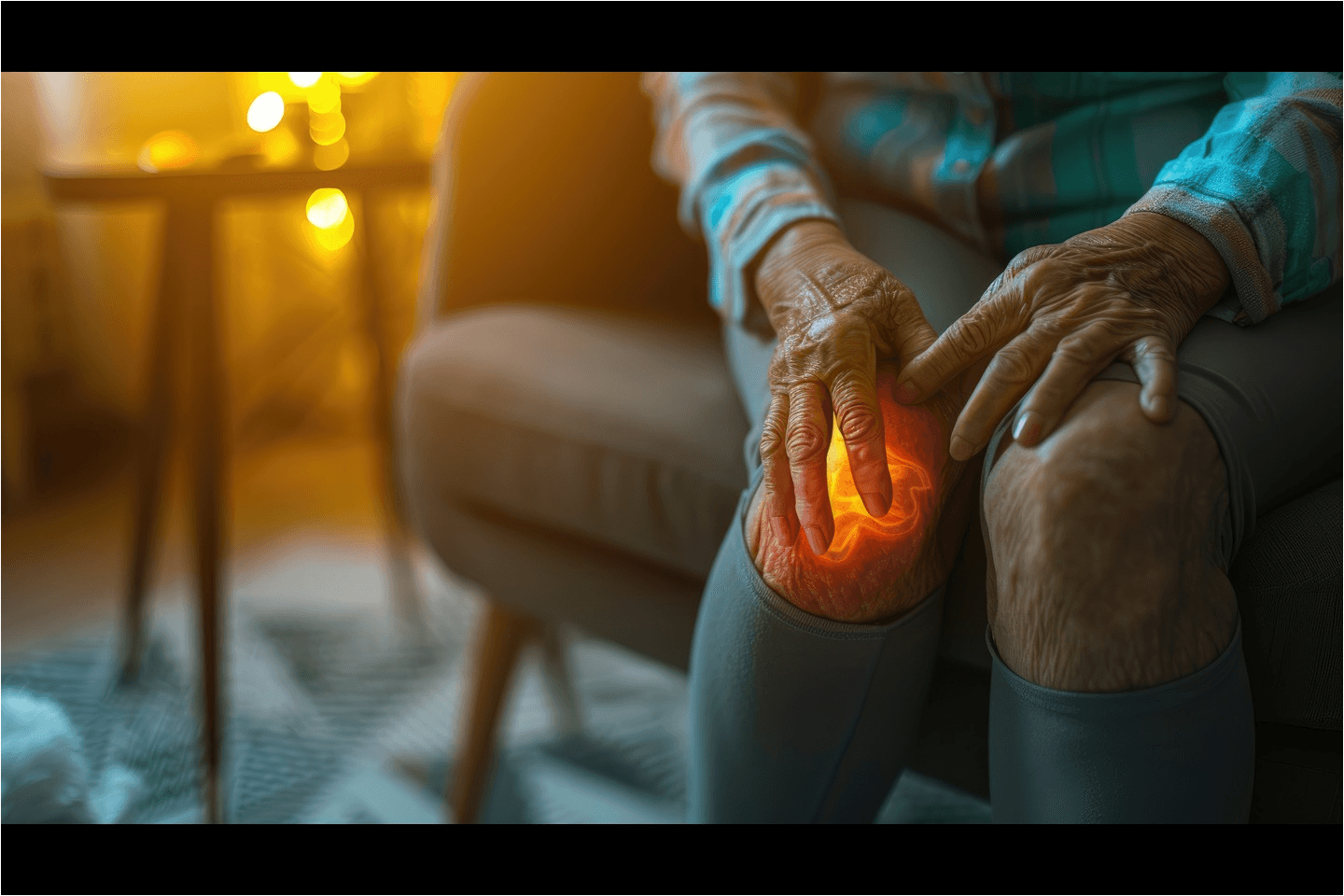
Understanding the Different Types of Inflammatory Arthritis
Introduction
Are your joints feeling stiff, swollen, or painful, especially in the morning? You could be experiencing symptoms of inflammatory arthritis. This group of chronic conditions causes ongoing joint inflammation, often making everyday tasks like walking, climbing stairs, or even holding objects more difficult. With millions affected globally, understanding the different types of inflammatory arthritis and how they impact the body is the first step toward better management and relief.
What is Inflammatory Arthritis?
Inflammatory arthritis refers to a group of autoimmune diseases characterised by joint inflammation. This inflammation, caused by the immune system mistakenly attacking healthy joint tissues, results in pain, swelling, stiffness, and progressive joint damage.
Over time, the damage to joints can worsen and cause deformities. When inflammatory arthritis affects the knees or hips, it can significantly impact a person's mobility, sometimes making treatments such as hip replacement or knee replacement necessary.
Rheumatoid Arthritis (RA)
Rheumatoid Arthritis (RA) is one of the most common types of inflammatory arthritis. According to WHO data, over 18 million people worldwide lived with RA in 2019. RA is a chronic disease in which the immune system attacks the joint lining, resulting in painful swelling. Over time, this can lead to joint deformity and bone erosion. RA often affects the knees and hips, leading to restricted movement. In severe cases, total knee replacement may be recommended to restore joint function.
Symptoms:
Common symptoms of Rheumatoid Arthritis include swollen, tender joints, morning stiffness lasting over an hour, persistent fatigue, and unintentional weight loss.
Impact on Daily Life:
Rheumatoid arthritis significantly impairs daily activities, such as challenging tasks like walking and climbing stairs. In advanced cases, total knee replacement surgery can relieve pain and restore mobility.
Risk Factors:
- Family history of RA
- Smoking
- Obesity
- Age (commonly diagnosed in middle-aged adults)
RA is also associated with osteoporosis, a condition that weakens bones and makes them more susceptible to fractures. In some cases, both RA and osteoporosis may increase the need for hip replacement surgery.
Psoriatic Arthritis (PsA)
Psoriatic Arthritis is an inflammatory arthritis that occurs in people with psoriasis. Psoriasis is a skin condition characterised by red, scaly patches. PsA causes pain, swelling, and stiffness in the joints, including the knees and hips. Like RA, PsA can lead to severe joint damage that may eventually require total knee replacement.
Symptoms:
- Swollen fingers and toes
- Joint stiffness and pain
- Changes in the nail, such as pitting or separation from the nail bed
- Eye inflammation
Connection to Psoriasis:
Psoriatic arthritis commonly develops in individuals with psoriasis, a chronic skin condition marked by red, scaly patches. However, some patients may experience PsA symptoms even without visible psoriasis.
Lifestyle Considerations:
Maintaining a healthy weight and staying physically active can help manage PsA symptoms. In advanced cases, knee or hip replacement may become necessary to preserve mobility and quality of life.
Ankylosing Spondylitis (AS)
Ankylosing Spondylitis is an inflammatory arthritis that primarily affects the spine but can also impact other joints like the knees and hips. AS causes chronic inflammation in the spine, leading to stiffness and fusion of the vertebrae. This can result in a stooped posture or limited mobility in severe cases.
Symptoms:
- Chronic back pain and stiffness
- Pain in the hips or knees
- Fatigue
- Reduced flexibility in the spine
Progression:
Ankylosing spondylitis is a chronic, progressive inflammatory arthritis primarily affecting the spine. Over time, it can cause vertebrae to fuse, reducing flexibility and a stooped posture.
For those with severe hip involvement, hip replacement surgery may be recommended to improve movement and reduce pain.
Early Diagnosis and Importance of Timely Treatment
Early diagnosis of inflammatory arthritis is critical to prevent permanent joint damage. If you experience persistent joint pain, swelling, or stiffness lasting more than six weeks, especially in the morning, consult a healthcare professional promptly.
Diagnostic Tests May Include:
- Blood tests for inflammatory markers and antibodies (e.g., rheumatoid factor, anti-CCP)
- Imaging such as X-rays, MRI, or ultrasound to assess joint damage
- Starting treatment early can slow disease progression, reduce symptoms, and improve quality of life.
Why Joint Replacement May Be Necessary
Inflammation from RA, PsA, and AS can cause irreversible joint damage, leading to pain, loss of function, and deformity. When joints like knees or hips are severely damaged, conservative treatments may no longer be effective. Joint replacement surgery is often recommended to:
- Relieve chronic pain
- Restore joint function and mobility
- Improve quality of life
Implants are designed to mimic natural joint movement and withstand physical activity. However, implants can wear out or loosen over time, sometimes requiring revision surgery to maintain joint function.
Innovative Joint Replacement Solutions
DESTIKNEE from Meril
DESTIKNEE by Meril is a cutting-edge knee replacement implant designed for total knee arthroplasty. It offers anatomical design, high flexion, and stability to restore natural knee movement and improve patient mobility.
Latitud Hip Replacement System by Meril
The Latitud Hip Replacement System by Meril features advanced materials like ceramic bearings and cross-linked polyethylene, providing durable, customisable hip implants that restore natural biomechanics and reduce recovery time.
MISSO® by Meril
MISSO® Robotic System by Meril enhances precision in knee replacement surgeries through CT-based planning and real-time intraoperative feedback, improving implant placement and patient outcomes. Compatible with Freedom, Destiknee, and Opulent knee implants, MISSO® aims to improve patient outcomes with quicker recovery and improved results.
Conclusion
Living with inflammatory arthritis may seem challenging, yet learning more about the disorder and determining effective treatment options is important to lead a better life. More awareness should be created, and the proactive measures that result in better outputs should be taken. Dedicate yourself to staying learned, communicating your knowledge, and supporting any person who is affected by inflammatory arthritis.



